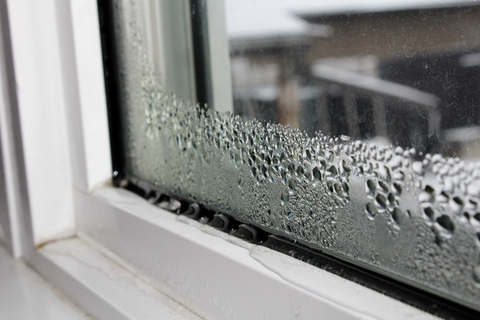Window Condensation

Window Condensation
Window condensation can be cause for concern. But, it matters where the condensation is forming. Condensation on the outside of the windows is fine – it means the windows are doing their job in keeping away heat transfer and insulating your home properly.
Condensation on the Inside
But, if you see condensation on the inside of window, or between the panes in a double-insulated window then you have problems. When the condensation accumulates on the inside of the home this water can be damaging to the home structure.

Deterioration of the Home
Wood that absorbs water can soften and develop rot, while water on a metal surface can develop rust. This is a gradual process that once discovered is usually to the point of costly repairs into the hundreds or thousands of dollars. It is better to get ahead of it so that you can control costs.
Condensation In between Panes
This is the worst of the situations because the seal of the window is compromised. The air-tight seal holding the insulating gas inside has failed, letting all the insulating gas out. Without the insulating gas, your windows are letting heat in during the summer and out during the winter. If you have condensation between your panes, you definitely need new windows.

An Opportunity
Replacing windows is a unique investment opportunity to improve the energy efficiency, safety and aesthetic appeal of your home, all in one undertaking. This is one purchase that can do some many things for your home and family.
- Substantially reduced heating and cooling costs.
- Smaller carbon footprint.
- Improved comfort and lighting.
- Dramatically reduced outside noise.
- Reduced fading of interior surfaces and contents from exposure to sunlight.
- Reduced frost and condensation.
- Better views, both curbside, and from the indoors looking out.
- Improved curb appeal and home value.
~~~~~~~~~~~~
This blog is NOT legal advice. It is not insurance policy advice. You should consult and attorney and/or a licensed insurance agent for your specific situation.






